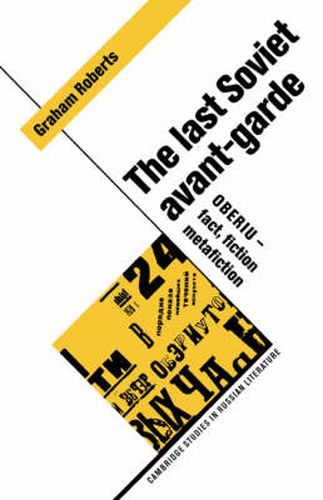Readings Newsletter
Become a Readings Member to make your shopping experience even easier.
Sign in or sign up for free!
You’re not far away from qualifying for FREE standard shipping within Australia
You’ve qualified for FREE standard shipping within Australia
The cart is loading…






This is a comprehensive study of a group of avant-garde Soviet writers active in Leningrad in the 1920s and 1930s who styled themselves OBERIU, ‘The Association for Real Art’. Graham Roberts re-examines commonly held assumptions about OBERIU, its identity as a group, its aesthetics and its place within the Russian and European literary traditions. He focuses on the prose and drama of group members Daniil Kharms, Aleksandr Vvedensky, and Konstantin Vaginov; he also considers work by Nikolay Zabolotsky and Igor Bakhterev, as well as the group’s most important ‘fellow-traveller’, Nikolay Oleinikov. He places OBERIU in the context of the aesthetic theories of the Russian formalists and the Bakhtin circle. Roberts concludes by showing how the self-conscious literature of OBERIU - its metafiction - occupies an important transitional space between modernism and postmodernism.
$9.00 standard shipping within Australia
FREE standard shipping within Australia for orders over $100.00
Express & International shipping calculated at checkout
This is a comprehensive study of a group of avant-garde Soviet writers active in Leningrad in the 1920s and 1930s who styled themselves OBERIU, ‘The Association for Real Art’. Graham Roberts re-examines commonly held assumptions about OBERIU, its identity as a group, its aesthetics and its place within the Russian and European literary traditions. He focuses on the prose and drama of group members Daniil Kharms, Aleksandr Vvedensky, and Konstantin Vaginov; he also considers work by Nikolay Zabolotsky and Igor Bakhterev, as well as the group’s most important ‘fellow-traveller’, Nikolay Oleinikov. He places OBERIU in the context of the aesthetic theories of the Russian formalists and the Bakhtin circle. Roberts concludes by showing how the self-conscious literature of OBERIU - its metafiction - occupies an important transitional space between modernism and postmodernism.